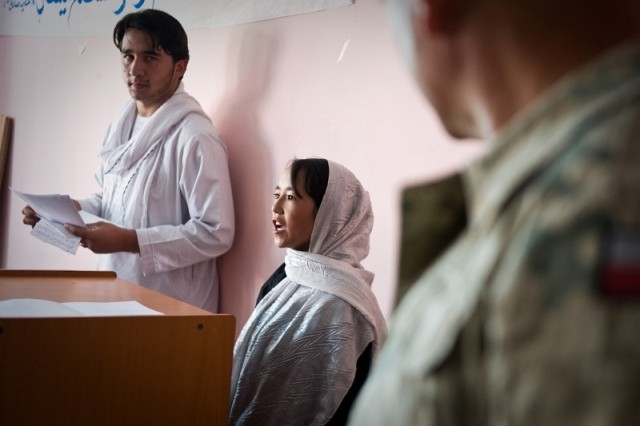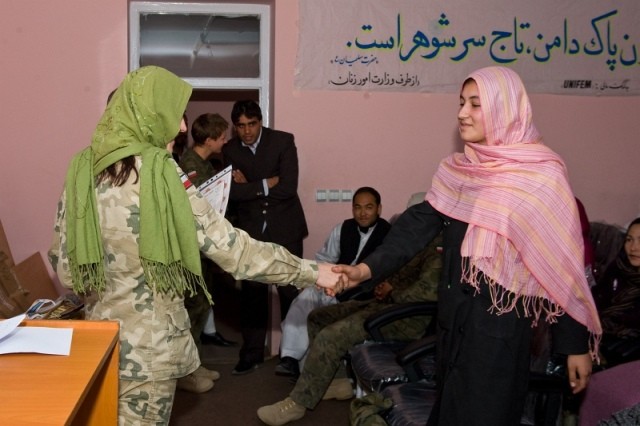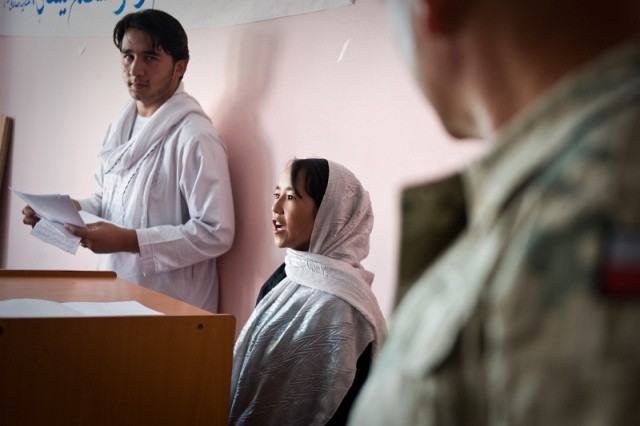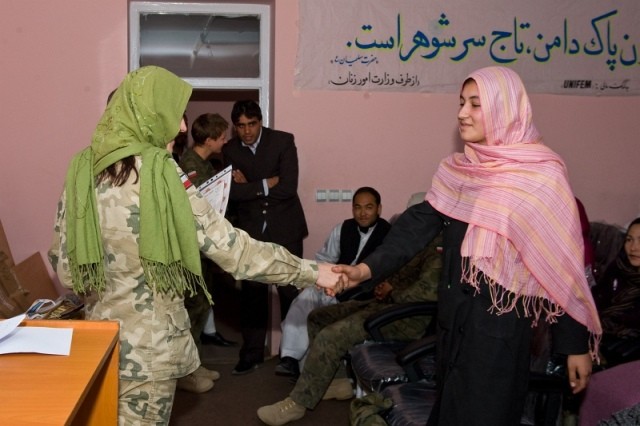GHAZNI PROVINCE, Afghanistan -- More than 70 women from Ghazni City completed English and computer classes provided by the Ghazni Provincial Reconstruction Team and Afghan non-government organization, Roshnaee Social Service Organization Nov. 11.
The program's goal was to improve skills of women working in public administration and with NGOs in the city. It also supplemented secondary and middle school students' academics.
The program is in its second year.
Smaller classes provide more thorough instruction, with classes divided into two sessions, morning and afternoon. Each session lasts three hours, six days a week for seven months.
In order to reduce the number of participants from 2009 and ensure smaller classes, the Ghazni PRT conducted a test for potential students in order to select the 70 best candidates for the course.
"Whatever the outcome [of the test], each woman received a bilingual dictionary (Dari to English) because, as it turned out, only a few students had one of their own," said Katarzyna Wojtusik, Ghazni PRT project manager.
Wojtusik pointed out finding quality English teachers is problematic.
"The best of them are in Kabul. We must choose from among those of Ghazni," she explained.
She went on to explain despite the limited staff selection, the PRT identified teachers with higher qualifications who can conduct classes based on higher-level textbooks.
They also improved the program by enriching it with exercises such as debate and conversations classes.
"We focused mainly on the exercise of speaking, mostly in pairs, role-playing regarding buying, receiving, telephone, presentation, etc," said Wojtusik.
By that point in the course, teachers spoke to students only in English.
"The benefit of the training is primarily to supplement the education of women. It is important because more than half of them, after [graduating] from high schools, [passed] university exams in Ghazni, but also in Kabul," Wojtusik said.
"An additional benefit is the improved performance of classes [in subjects] that may have appeared in the curriculum in high school or junior high school, however, difficult learning conditions and qualifications of the participants of the teachers made it impossible to use them," Wojtusik said, referring to challenges in the Afghan education system such as lack of electricity and equipment for science classes, overcrowded classes, teaching in tents, no chairs and benches, etc.
The completed project also showed there is a need for training of teachers themselves, whose skills should be higher. The Ghazni PRT is planning training in teaching methodology for instructors next year.




Social Sharing